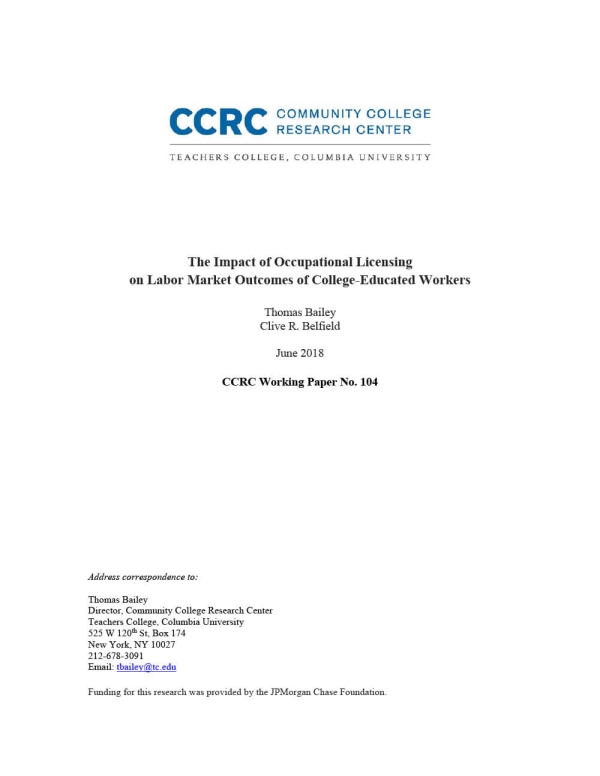More than one third of college-educated workers have a license that provides the right to practice a particular occupation. In contrast to certificates, these licenses—serving either as a productivity signal or acting as a restrictive practice—are associated with significantly higher earnings. Thus, it is possible that some part of the returns to college are in fact returns to licensing.
In this paper, the authors identify the effects of licenses on a set of labor market outcomes for the college-educated workforce using newly available national Current Population Survey data merged with U.S. Department of Labor.
The results show significant discrepancies between individual self-reported licensing rates and state-mandated licensing requirements across occupations. Findings indicate significant advantages from licensing in terms of earnings and labor market participation (hours worked). Moreover, controlling for licensing does not significantly reduce the measured returns to college. Licenses convey economic benefits even in occupations where they are not required. In contrast to prior studies, the current study also finds that licenses reduce wage dispersion across the college-educated workforce.



